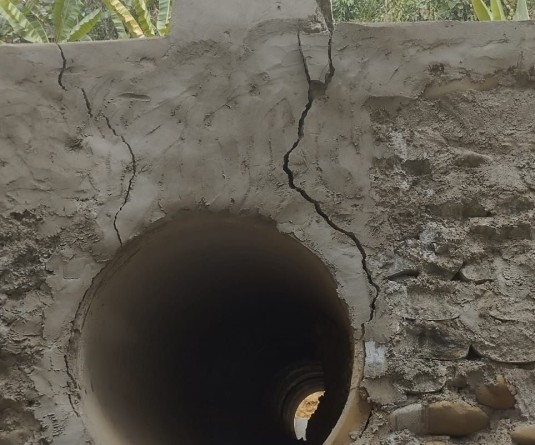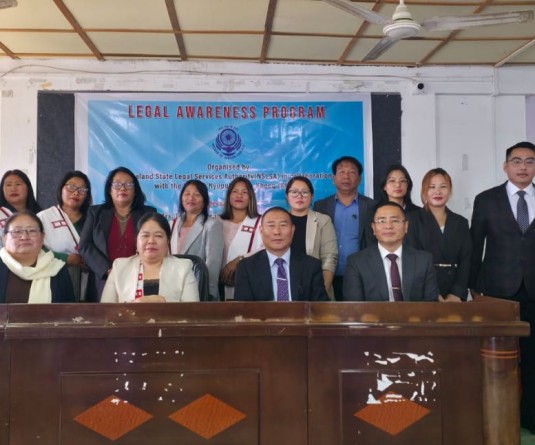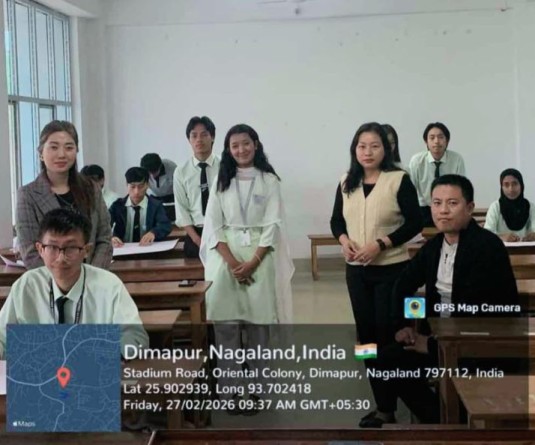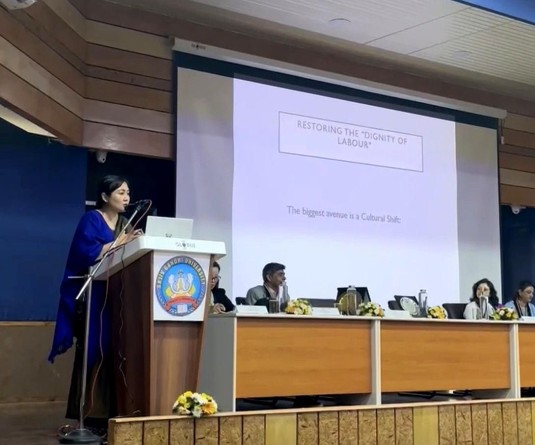
DIMAPUR, NOVEMBER 3 (MExN): Noted peace activist and trustee, Initiatives of Change, Niketu Iralu, has said that ethnic communities like Nagas, Mizos and others are being drawn into the vortex of the “extraordinary interest” shown by Western countries and Asian giants to Myanmar and North-East India.
“Every day, Myanmar (Burma) is becoming a phenomenon of great expectations due to its immense natural resources and strategic geo-political location...it is impacting us (ethnic communities) and we are all dragged into this crisis, opportunity or danger,” the peace activist said.
Iralu was delivering the keynote address at the workshop on ‘India-Burma Relations: Prospects, expectations and concerns’ jointly organized by Burma Centre, Delhi, and Nagaland Baptist Church Council (NBCC) and hosted by Dimapur Press Club (DPC) at AIDA Complex on Saturday.
Recounting his discussion with a German friend, Iralu quoted the former and said that multi-national companies in Europe are waiting like vultures to descend in NE Region and Myanmar to devour the regions’ rich natural resources.
To buttress his point, the peace activist also narrated his experience with Adivasi people who are in “danger” because of the rich resources of Adivasi land. Further, Iralu narrated the plight of the Bodo people whose “loss of heritage” in the form of total destruction of their rich Sal forests due greed of bureaucrats, forest officials and the Bodos themselves; a loss that continues to haunt the Bodo people till today.
Given the present context, Iralu said the size, nature and quality of ideas that run the lives of Naga (ethnic) people will ultimately decide the “outcome of what will become of us.”
He said ethnic people in Asia’s “most volatile frontier” (NE region according to journalist Bertil Lintner), have to be very clear on their position and not give in to panic.
On a general note, he also reminded stakeholders and players of the ‘Great Game East’ to place “people before profit” as people are more important than materials or things.
The second session was chaired by former MP of National League for Democracy (NLD) Dr. Tint Swe, addressing the gathering he said that while residing in India his main focus for the last two decades was India’s Burma policy. “I usually see it not only from Burma angle but also for mutual benefit based on convincing neighbourly relations. I concluded that India should have done better,” he said.
Concerning the changing outlook of Burma, he said India got to grab the opportunity of the changing situation in Burma. “I see a ray of hope as Daw Aung San Suu Kyi is visiting New Delhi on the 13th.”
In regard to the Burmese Nagas, he said that it will be wonderful if each of four States of India bordering Burma can help their “blood relatives of the other side”. Infrastructure is the first to develop and civil societies of both sides should join hands.
Referring to the Burmese Nagas as the most under privileged, he said that according to the constitution of 2008 Naga areas became one of six Self-Administered Zones. On August 20, 2010 Naga Self-Administered Zone became official consisting three Townships, Lahe, Leshi and Namyun in Sagaing Division. The Nagas in exile tried their level best to help their homeland in Burma. However they can enjoy little assistance if not nothing. Aiming for 2015 election, the Naga NLD is trying to register as a legal political party in Burma, of which he wishes them success.
In regard to Indo-Burma relations, General Secretary of Dimapur Press Club, Filip Sumi, said Nagas in Burma have great expectations. Since decades back, India and Burma have been talking about joint military operations but not about development. “…why not talk about joint development also not just on paper but on the ground too. If we have to ask the Eastern Nagas, what is your immediate need? Then roads come to mind first followed by healthcare and education.”
He also pointed out that there are lots of funds from foreign agencies meant for ethnic community and Nagas in Burma. However, these agencies are reluctant to hand over the funds to Burmese government fearing that the money would be misused. This led to the formation of Naga Peoples’ Development Front.
Also, the Chairman of Naga National League for Democracy in exile U Saw Sa stressed that the importance of the need for the constitution to be amended. Though things are changing in Burma, Burmese Nagas are still not convinced that the stability of the government would last because even in the past the Junta took over the government twice. He also added that he is expecting much from India, being the largest democracy.
Others who spoke during the session were Coordinator of Burma Centre Delhi Dr. Alana Golmei, who gave a presentation on the current scenario in Burma. Also, another Coordinator of Burma Centre Delhi Kim highlighted the violation of human rights towards the ethnic groups in Burma. He said that Essar Projects Ltd’s Kaladan Multi Modal Trade and Transport Project was carried out without the consent of the local people.
Secretary General of Zomi Human Rights Foundation, Suanmoi Guite, spoke about the international boundary that has created a Berlin wall kind of situation for the people of the region. He also spoke about the oil wells that have been found in the Churachandpur district, and the discourse surrounding the same.
Dr. Hukashe represented the Nagaland Baptist Churches Council. He admitted that NBCC needs to do more in uplifting the Burmese Nagas. However, he said the church has been trying its best to offer help. He also said that human relations are more important than economic or political relations because even if there is development if the bond among people is rickety than it is of no use.
General Secretary of Eastern Naga Students’ Association Y. Khomong also expressed the hurdles faced by the Nagas in Burma. He suggested the NBCC to change their prayer strategy, stating many missionaries wish and pray to go to other countries ignoring their own brothers, who need their help in every way. He added that focus on education should be given the first priority.
He also appealed the exiled Burmese leaders to come back to the country and start working for the people. ”…it is the right time to go back and work for our people.”
Today, the discourse concluded with what strategies needs to be taken to address the issue. It was resolved that to identify areas where developmental projects are taking place, explore and identify affected communities in project area, find out expectations from the concern communities, to find proper and right channel communication to highlight the problems and to explore the policies government(s) with regard to project. Also, to identify civil society groups/ organizations/respective tribal Hohos to survey the issues. The house resolved to include NBCC, Naga Hoho, NMA, NSF, NPMHR, ENSA, ENPO, Naga Yuya and media fraternity.






